
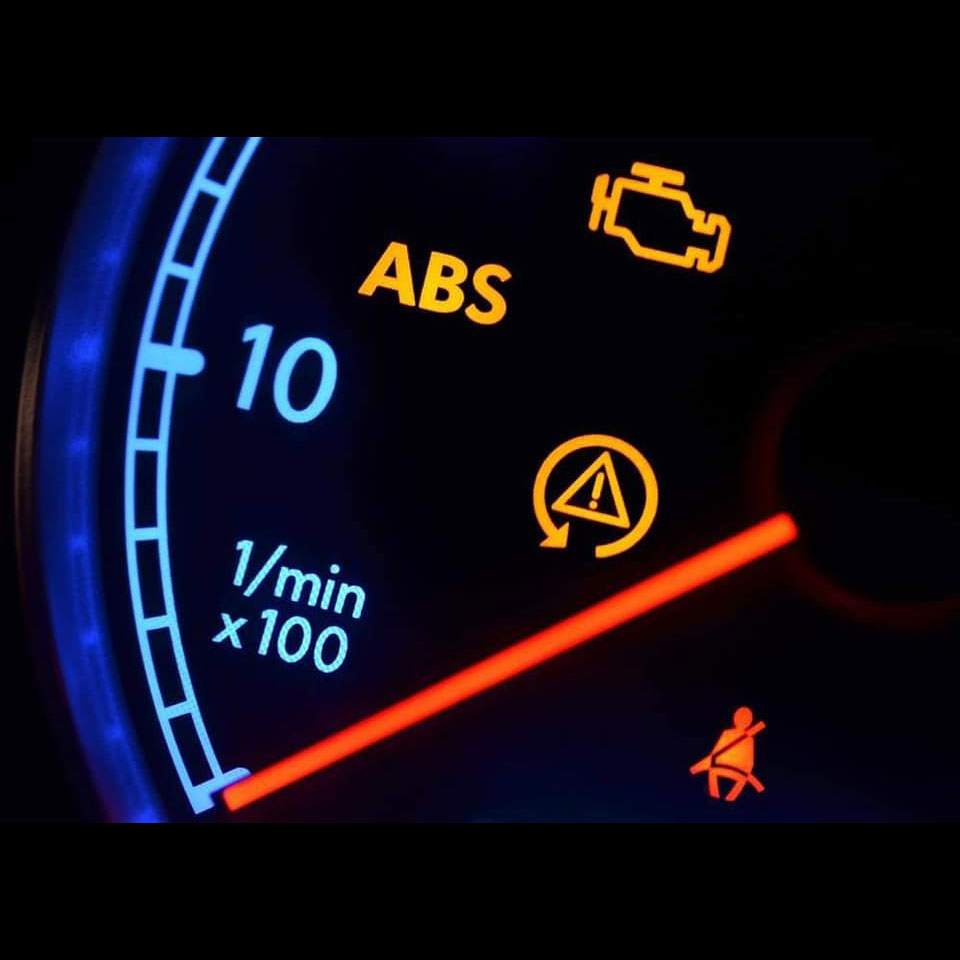
10 Symptoms of a Bad ABS Module You Shouldn’t Ignore
Contents
- 1. Understanding the ABS Module
- 1.1. ABS System Operation Explained
- 1.2. Integration with Other Vehicle Systems
- 2. Recognizing the Symptoms of a Bad ABS Module
- 2.1. ABS Warning Light Is On
- 2.2. Brake Pedal Is Unresponsive or Hard to Press
- 2.3. Brakes Lock Up Under Hard Braking
- 2.4. Increased Stopping Distance
- 2.5. Unusual Brake Pedal Behavior (Pulsing, Vibrations)
- 2.6. Speedometer Fails or Acts Erratically
- 2.7. Traction Control or Stability Control Light Illuminated
- 2.8. ABS Pump Motor Running Constantly or Not At All
- 2.9. Fault Codes Stored in the ECU
- 2.10. Intermittent Functionality or Random Warning Lights
- 3. Common Causes of ABS Module Failure
- 4. Diagnosing a Bad ABS Module
- 4.1. What You Will Need To Prepare
- 4.2. How to Diagnose a Bad ABS Module
- 5. Repair or Replace?
- 6. Driving with a Bad ABS Module: Is It Safe?
- 7. AutoExplain: Your Partner for ABS Module Solutions
- 8. FAQ: Addressing Your Concerns About ABS Modules
- Conclusion: Ensuring Your Safety with a Properly Functioning ABS
Modern vehicles are equipped with advanced safety systems designed to protect drivers and passengers in all driving conditions. One such crucial system is the Anti-lock Braking System (ABS). At the heart of this safety feature lies the ABS module, a component that ensures your wheels maintain traction with the road surface during braking. However, like any part of a vehicle, the ABS module can fail over time. Ignoring the warning signs of a Bad Abs Module can lead to compromised vehicle safety and expensive repairs. In this article, AutoExplain’ll dive into the top 10 symptoms of a bad ABS module that you shouldn’t ignore.
1. Understanding the ABS Module
The Anti-lock Braking System (ABS) module serves as the central processing unit of your vehicle’s ABS. It’s crucial for preventing wheel lockup during abrupt stops or on slippery surfaces. Let’s delve into its operation and role within other vehicle systems.
1.1. ABS System Operation Explained
Since 2004, ABS has been a standard feature in all new vehicles sold in the U.S. ABS enhances safety by preventing wheel lockup, allowing the driver to maintain steering control and reduce stopping distances. According to the National Highway Traffic Safety Administration (NHTSA), ABS can reduce crashes by up to 18%.
A typical ABS setup includes:
- Wheel Speed Sensors: One sensor at each wheel to monitor rotational speed.
- Hydraulic Control Unit (HCU): Manages brake fluid pressure using a pump motor and solenoid valves.
- ABS Control Module: The “brain” of the system, also known as the Electronic Brake Control Module (EBCM) or Electronic Brake Module (EBM).
The ABS module continuously monitors data from the wheel speed sensors. If a wheel is about to lock up, the module signals the HCU to modulate brake fluid pressure to that wheel. This pulsing action allows the wheel to maintain traction, preventing skidding and ensuring optimal braking.
ABS module is the computer that manages the ABS system
1.2. Integration with Other Vehicle Systems
Beyond its primary function, the ABS module integrates with other crucial vehicle systems. These integrations enhance overall vehicle safety and performance:
- Traction Control System (TCS): The ABS module collaborates with the TCS to limit wheel spin during acceleration.
- Electronic Stability Control (ESC): It works with ESC to maintain vehicle stability by selectively applying brakes to individual wheels to correct oversteer or understeer.
- Advanced Driver Assistance Systems (ADAS): The module supports ADAS features like Automatic Emergency Braking (AEB) and Hill Start Assist by providing precise control over the braking system.
If the ABS module goes bad, your vehicle’s anti-lock braking system will stop functioning properly, increasing the risk of wheel lock-up and loss of control during hard or emergency braking. This can lead to longer stopping distances, especially on wet or slippery roads. You may also see warning lights for ABS, traction control, or stability control, and experience issues like a hard brake pedal or erratic speedometer readings. In some cases, it can drain the battery if the ABS pump runs constantly. A faulty ABS module compromises safety and should be diagnosed and repaired as soon as possible.
2. Recognizing the Symptoms of a Bad ABS Module
Identifying a bad ABS module early can prevent further damage and ensure your safety. Here are common symptoms to watch for:
Note: Other issues can mimic a failed ABS module. A thorough diagnosis is essential before starting any repairs. AutoExplain’s remote diagnostic services can help pinpoint the exact cause of your braking problems.
2.1. ABS Warning Light Is On
The most obvious indicator of a bad ABS module is the illumination of the ABS warning light on your dashboard. When the module detects a malfunction within the system, it sends a signal to activate this warning. While this light doesn’t always indicate a bad ABS module—it could be due to a faulty wheel speed sensor or damaged wiring—persistent illumination warrants a full diagnostic check. Using an OBD-II scanner to retrieve fault codes can help determine if the ABS module is the root cause.
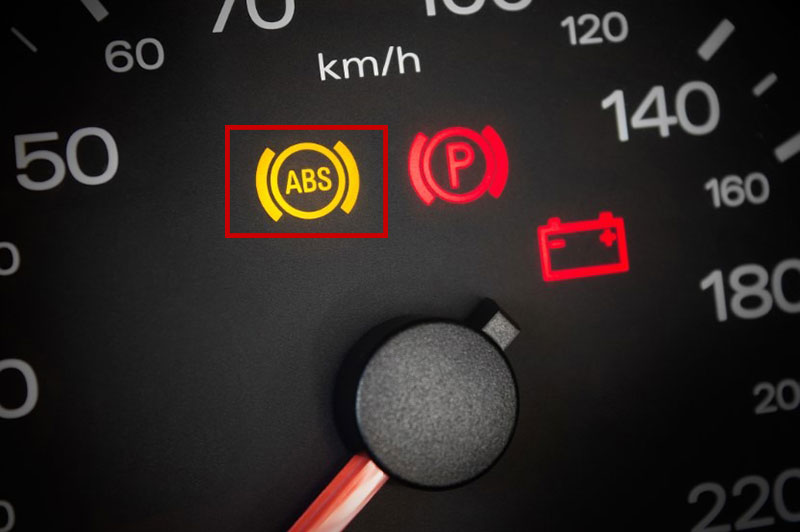
2.2. Brake Pedal Is Unresponsive or Hard to Press
An often overlooked symptom of a bad ABS module is a brake pedal that becomes hard to press or unresponsive. The ABS module plays a role in modulating brake pressure during emergency stops. If the module malfunctions, it might interfere with the hydraulic braking pressure, leading to a stiff or ineffective brake pedal. This symptom is dangerous as it directly affects your ability to stop the vehicle in time.

2.3. Brakes Lock Up Under Hard Braking
One of the main purposes of ABS is to prevent wheel lock-up during heavy braking. A failing ABS module may disable this feature, causing your wheels to lock up and potentially sending your vehicle into an uncontrolled skid. If you notice that your vehicle’s wheels lock up even under moderate braking conditions, it’s a strong sign that your ABS module might be faulty.

2.4. Increased Stopping Distance
Increased stopping distance is another serious symptom of a bad ABS module. The module helps optimize braking force to reduce the time and distance it takes to bring your vehicle to a halt. A malfunctioning ABS module can delay the activation of braking pressure, leading to longer stopping distances, especially on slippery or uneven surfaces. This compromises not only your safety but also the safety of others on the road.
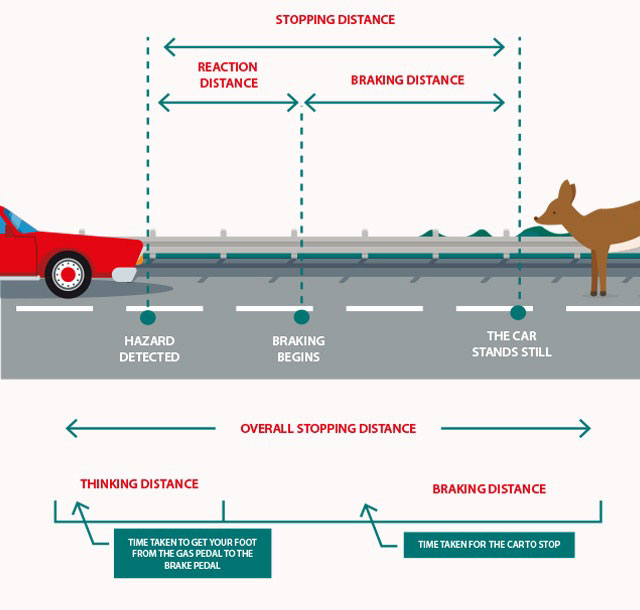
2.5. Unusual Brake Pedal Behavior (Pulsing, Vibrations)
Normally, you may feel the brake pedal pulsing during emergency braking, which is a sign that the ABS is working correctly. However, if this pulsing occurs during normal braking or you experience strange vibrations in the pedal, it may indicate that the ABS module is acting erratically. This kind of behavior typically points to internal faults or electrical problems within the module.
2.6. Speedometer Fails or Acts Erratically
In some vehicles, the ABS module shares data with the speedometer and other onboard systems. A bad ABS module may send incorrect speed data or fail to transmit data altogether, leading to a speedometer that behaves erratically or doesn’t function at all. This can be not only frustrating but dangerous, as you won’t be able to accurately monitor your speed.
2.7. Traction Control or Stability Control Light Illuminated
Modern vehicles often integrate the ABS module with traction control and electronic stability control systems. If the ABS module fails, these systems may also be affected. As a result, you may see warning lights for traction control or stability control appear on your dashboard. These systems rely on accurate data and responses from the ABS module to function properly, so any failure here is a serious concern.
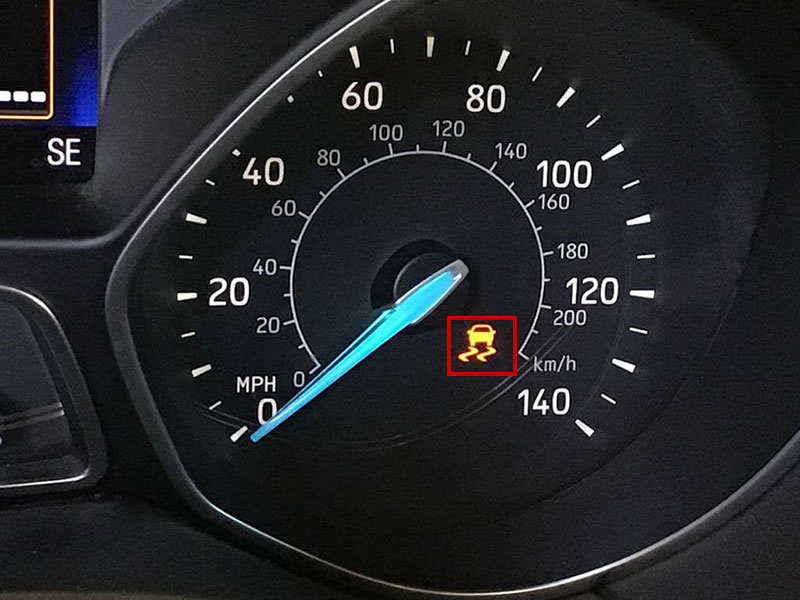
2.8. ABS Pump Motor Running Constantly or Not At All
The ABS module is responsible for regulating the ABS pump motor, which pressurizes the brake fluid in the system. If the module fails, the pump may run continuously, draining the battery and causing excessive wear. Conversely, the pump may not run at all, meaning the ABS system cannot pressurize and operate correctly. Both scenarios point to a malfunctioning ABS module.
2.9. Fault Codes Stored in the ECU
Diagnostic Trouble Codes (DTCs) are an invaluable tool when diagnosing vehicle issues. A bad ABS module will usually trigger specific fault codes such as C0265 (Electronic Brake Control Module Relay Circuit) or U0121 (Lost Communication With Anti-Lock Brake System Module). Using a scan tool, technicians can retrieve these codes and determine if the ABS module is indeed at fault. These codes help differentiate ABS module issues from problems with sensors or wiring.
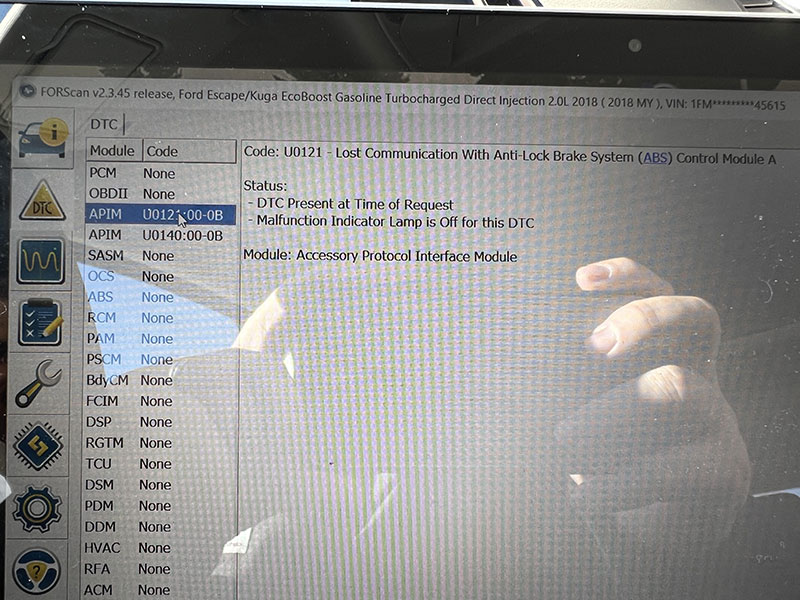
2.10. Intermittent Functionality or Random Warning Lights
Sometimes, a failing ABS module may not completely shut down but operate intermittently. You might notice ABS-related lights turning on and off randomly, or the ABS system working sporadically. These inconsistencies can stem from internal electrical issues within the ABS module, such as failing solder joints or a compromised circuit board. This symptom can be especially tricky to diagnose without specialized equipment.
3. Common Causes of ABS Module Failure
Several factors can contribute to ABS module failure, most of which stem from electrical, environmental, or mechanical issues:
- Corrosion and Moisture Intrusion: The ABS module is often mounted in areas exposed to water, road salt, and debris. Over time, moisture can seep into the module housing, corroding internal components and causing shorts or signal interference.
- Faulty or Weak Electrical Grounds: A poor ground connection can cause voltage fluctuations or intermittent loss of power to the ABS module. These inconsistencies can lead to erratic behavior, false error codes, or complete system shutdown.
- Excessive Vibration and Heat: Being mounted near the engine or wheel wells, the ABS module is subject to high levels of heat and vibration. Prolonged exposure can cause solder joints to crack or circuit boards to warp, resulting in internal electrical failures.
- Wiring Harness Damage: Damaged or frayed wires, especially those connected to wheel speed sensors or power supplies, can create signal loss or shorts that are misinterpreted as module failure. In some cases, this can damage the module itself over time.
- Pump Motor Overuse or Failure: If the hydraulic pump motor that pressurizes the brake fluid runs excessively (due to a stuck relay or internal fault), it can overload the module’s circuitry or burn out internal components.
- Contaminated Brake Fluid: In integrated ABS systems, contaminated brake fluid can damage the solenoids and valves within the hydraulic control unit. Debris or corrosion inside the fluid channels can also impair module function.
- Software Glitches or Firmware Corruption: Some modern ABS modules rely on software and firmware for system operations. A failed update, voltage surge, or communication error can corrupt the module’s internal programming, causing operational issues.
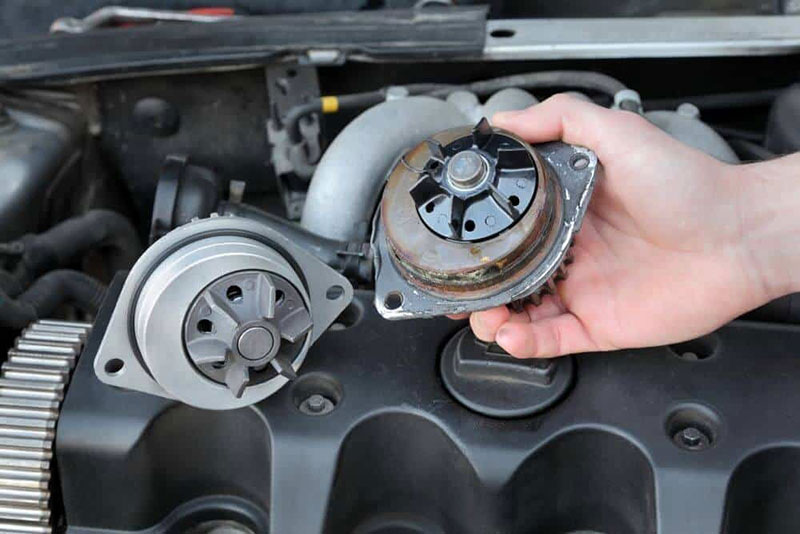
Understanding these common causes can help technicians and DIYers alike perform accurate diagnostics and take preventive measures to protect the ABS module from early failure.
4. Diagnosing a Bad ABS Module
4.1. What You Will Need To Prepare
Diagnostic Tools:
These tools help you communicate with the ABS module and retrieve fault codes or perform live system tests.
-
Generic OBD-II Scanner – For basic ABS code reading on most vehicles (limited use).
-
Mercedes-Benz: XENTRY (Star Diagnostic System) – Full access to ABS module, coding, and system tests.
-
BMW: ISTA/D or INPA – Advanced diagnostics and real-time data for BMW ABS systems.
-
Audi/VW: VCDS by Ross-Tech – Module-specific scans, live data, and ABS adaptations.
-
Other Brands: Use professional scan tools like Autel MaxiSys, Launch X431, or Snap-On Solus Edge, which support wide brand coverage including ABS diagnostics.
=> Click here to learn how to use Mercedes Xentry
Mechanical Tools:
These are essential for physical inspection and testing around the ABS system.
-
Multimeter – To test voltage and ground at the ABS module and wheel speed sensors.
-
Test Light – For quick power and ground checks.
-
Torque Wrench – For removing/installing wheel speed sensors and module bolts correctly.
-
Brake Fluid Tester – To check for contamination that may affect ABS hydraulic function.
-
Inspection Mirror & Flashlight – For checking corrosion or moisture damage near the ABS unit.
-
Wire Brush or Electrical Cleaner – For cleaning ground connections and corroded terminals.
4.2. How to Diagnose a Bad ABS Module
Properly diagnosing a bad ABS control module involves a series of methodical steps to rule out other possible issues and confirm the fault. Here’s how to approach it:
4.2.1. Perform a Visual Inspection
Start by inspecting the ABS module and its surroundings. Look for signs of corrosion, broken connectors, damaged wiring, or fluid leaks. Pay close attention to the harness connections and ensure the module is securely mounted.
4.2.2. Check Fuses and Relays
Locate the ABS system’s fuse and relay in the fuse box and check if they are blown or malfunctioning. A blown fuse could disable the system entirely and mimic a module failure.

4.2.3. Retrieve Diagnostic Trouble Codes (DTCs)
Use a professional diagnostic scanner to access the vehicle’s ABS system. Different manufacturers often require specific tools to properly communicate with their proprietary systems:
- Mercedes-Benz: Use the Mercedes Star Diagnostic (XENTRY) system. This factory-level tool offers full access to the ABS module, live data, and system actuation tests.
- BMW: Use the BMW ISTA/D (Integrated Service Technical Application) or INPA for older models. These tools provide full module scanning, real-time monitoring, and guided troubleshooting.
- Audi (and other VW Group vehicles): Use VCDS (VAG-COM Diagnostic System) by Ross-Tech. It provides access to ABS coding, live data, and fault code interpretation specific to Audi and VW systems.
Generic OBD-II scanners may read some ABS codes, but they often miss brand-specific data or module-specific faults. Always use the recommended tool for accurate diagnostics.
*Some Common ABS Error Code:
=> Mercedes ABS Fault Code List:
=> Audi ABS Fault Code List:
4.2.4. Run Live Data and Actuation Tests
Once connected, view live data from the ABS sensors and perform output tests (such as activating the ABS pump or solenoids). These tests help confirm whether the module is correctly receiving and transmitting data.
4.2.5. Check Voltage and Ground
Using a multimeter, verify that the ABS module is receiving proper voltage and has a solid ground. Fluctuating voltage or poor grounding can mimic or even cause module faults.
4.2.6. Check Wheel Speed Sensors and Wiring
Before concluding that the ABS module is faulty, ensure all wheel speed sensors are functioning and wiring is intact. Faulty sensors often trigger ABS warning lights and may incorrectly suggest a bad module.
By following this step-by-step process and using the correct tools for your specific vehicle brand, you can accurately diagnose whether the ABS module is the true source of the problem.
Please Note: *ABS Control Module Location
The location of the ABS control module varies by vehicle make and model. However, it is usually found in one of the following locations:
- Engine Compartment: Mounted to the hydraulic control unit.
- Inside the Cabin: Underneath the dashboard or seats.
Consult your vehicle’s service manual for the exact location of the ABS module.
5. Repair or Replace?
Whether to repair or replace a bad ABS module depends on the extent of the damage and the vehicle’s make and model. Some modules can be refurbished by specialty repair services, which may include replacing internal components and reflowing solder joints. However, these repairs may not be as reliable as installing a new or remanufactured module.
When replacing an ABS module, it’s crucial to ensure compatibility and proper programming. Many modern vehicles require the new module to be coded to match the vehicle’s VIN and configuration, which often requires a dealer-level diagnostic tool.
6. Driving with a Bad ABS Module: Is It Safe?
Driving with a faulty ABS module can be risky. The ABS system may not function properly, reducing your ability to control the vehicle during emergency braking situations. In addition, related systems like traction control and stability control may also be affected. It is advisable to address the problem as soon as possible to ensure your safety.
7. AutoExplain: Your Partner for ABS Module Solutions
When it comes to ABS module issues, AutoExplain is your reliable partner. We offer:
- Remote Diagnostics: Our experts can remotely diagnose ABS problems and provide accurate solutions.
- Module Programming and Configuration: We offer programming and configuration services to ensure your new ABS module works seamlessly with your vehicle.
- Expert Support: Our team of experienced technicians is available to answer your questions and guide you through the repair process.
Don’t compromise your safety with a faulty ABS module. Contact AutoExplain today to learn more about our comprehensive ABS solutions.
AutoExplain
Address: 1500 N Grant ST Sten Denver, Colorado, United States
WhatsApp: +1(936)2896695
Email: [email protected]
Don’t wait until it’s too late! Ensure your vehicle’s braking system is in top condition.
8. FAQ: Addressing Your Concerns About ABS Modules
Here are some frequently asked questions about ABS modules:
- What is the purpose of the ABS module?
- The ABS module is the control unit that manages the anti-lock braking system, preventing wheel lockup during hard braking.
- How do I know if my ABS module is bad?
- Common symptoms include an illuminated ABS warning light, non-functional ABS, and unintended ABS activation.
- Can I replace the ABS module myself?
- Replacing an ABS module requires specialized tools and knowledge. It’s best to consult a professional technician. AutoExplain offers remote support to guide you through the process.
- Can a bad ABS module affect other systems in my car?
- Yes, a faulty ABS module can affect related systems like traction control, stability control, and advanced driver assistance systems (ADAS).
- How can AutoExplain help with my ABS module problems?
- AutoExplain offers remote diagnostics, module programming, and expert support to resolve ABS module issues efficiently and effectively.
- What tools do I need to diagnose an ABS module?
- A scan tool that can read ABS codes, a multimeter, and access to vehicle-specific service information are essential for proper diagnosis.
- Is it possible to repair an ABS module, or does it always need to be replaced?
- In some cases, an ABS module can be repaired, but this depends on the nature and extent of the damage. AutoExplain can assess the module and recommend the best course of action.
- What are the potential consequences of ignoring a bad ABS module?
- Ignoring a bad ABS module can compromise your vehicle’s braking performance, increase the risk of accidents, and potentially damage other related systems.
- How often should I have my ABS module checked?
- It’s a good practice to have your ABS module checked during routine maintenance, especially if you notice any warning lights or unusual braking behavior.
Conclusion: Ensuring Your Safety with a Properly Functioning ABS
A properly functioning ABS module is crucial for maintaining your vehicle’s safety and performance. Recognizing the symptoms of a bad module and addressing the issue promptly can prevent accidents and ensure optimal braking. AutoExplain is committed to providing you with the expertise, tools, and support you need to keep your ABS system in top condition. Contact us today for a consultation and let us help you drive with confidence!

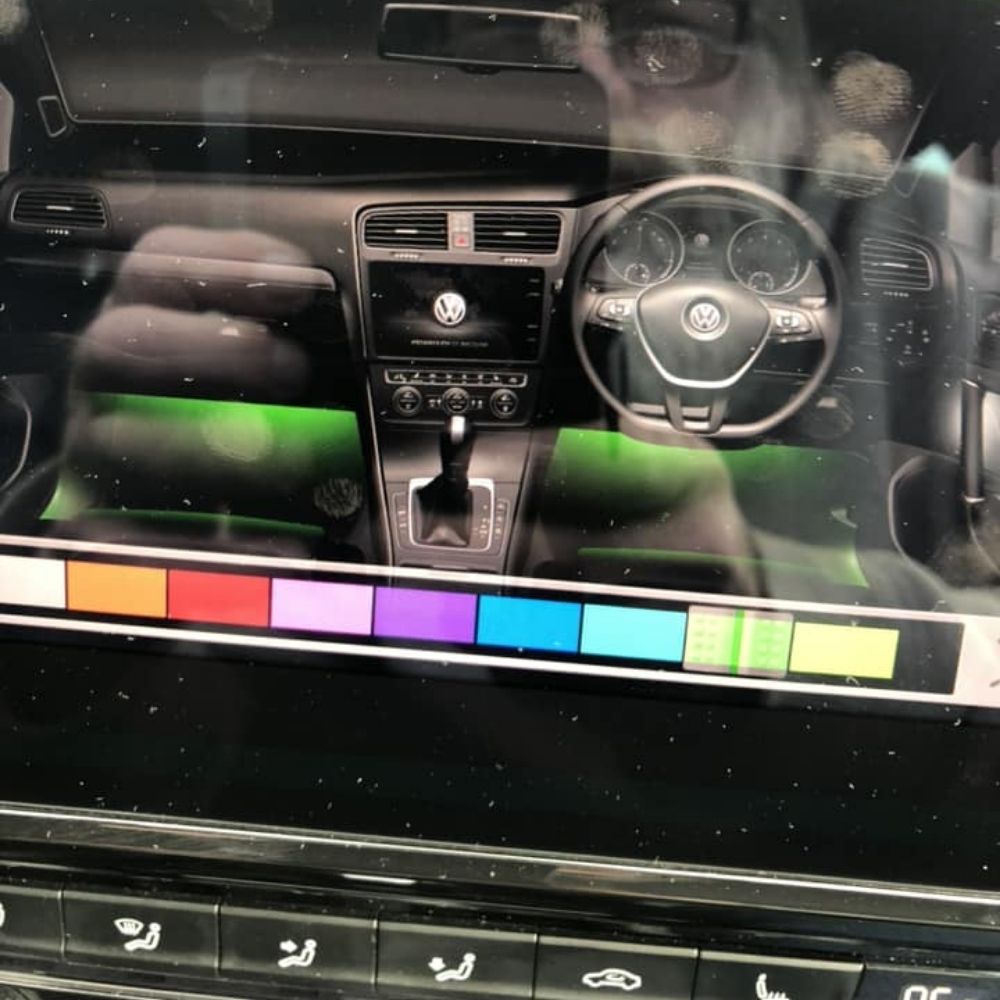
How to Coding Ambient Light for VW Golf R 2018 by OBDeleven

How to Perform 7 Speed DSG Basic Settings with ODIS on Skoda Octavia
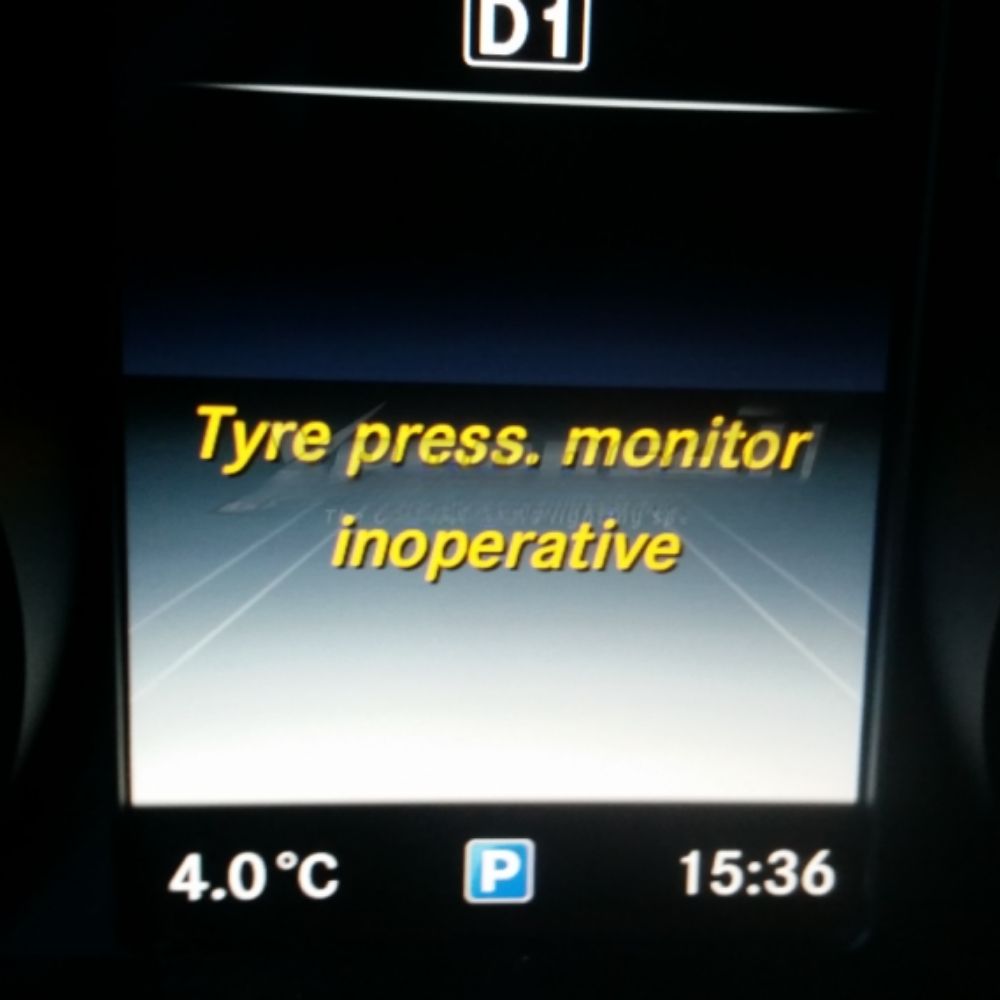
How do you fix a Tire Pressure Monitor Inoperative Mercedes


Master VAG Coding vs VAG Expertise: Which Training Book Is Better?

How to Coding Ambient Light for VW Golf R 2018 by OBDeleven





